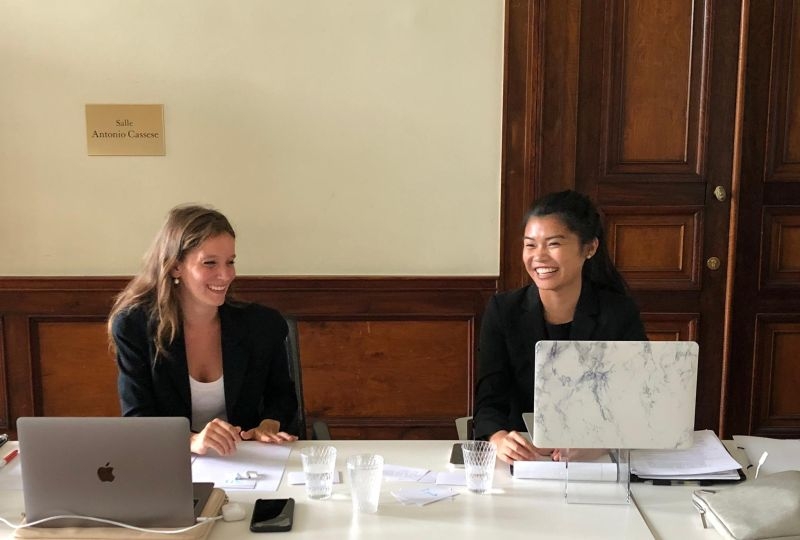Participation in the Nelson Mandela Moot Court allows our students to apply the legal concepts they have learned in class to contemporary human rights cases and challenges.
‘The Nelson Mandela Moot Court was a very enriching experience. Not having gone to law school, this competition was very daunting especially considering we would be competing with law school students. I learned a lot about international human rights law, and this competition expanded my interest in the intersection between social media and human rights. In fact, for my master’s paper, I am writing about social media and human rights in Myanmar’ says Anh-Thu.
‘The Nelson Mandela Moot Court has allowed Anh-Thu and Bettina to strengthen and elaborate on their knowledge obtained during the master programme, and to apply it in a dynamic setting. Throughout the preparations, it was a true pleasure and an inspiration to see how they have deepened their understanding of international human rights law and familiarized themselves with the jurisprudence of a variety of regional human rights frameworks. Bettina and Anh-Thu have greatly enhanced their oral skills, which was eventually noticed by the judges, who praised their oral performance at the competition’ underlines Ana Srovin Coralli, Teaching Assistant at the Geneva Academy.








